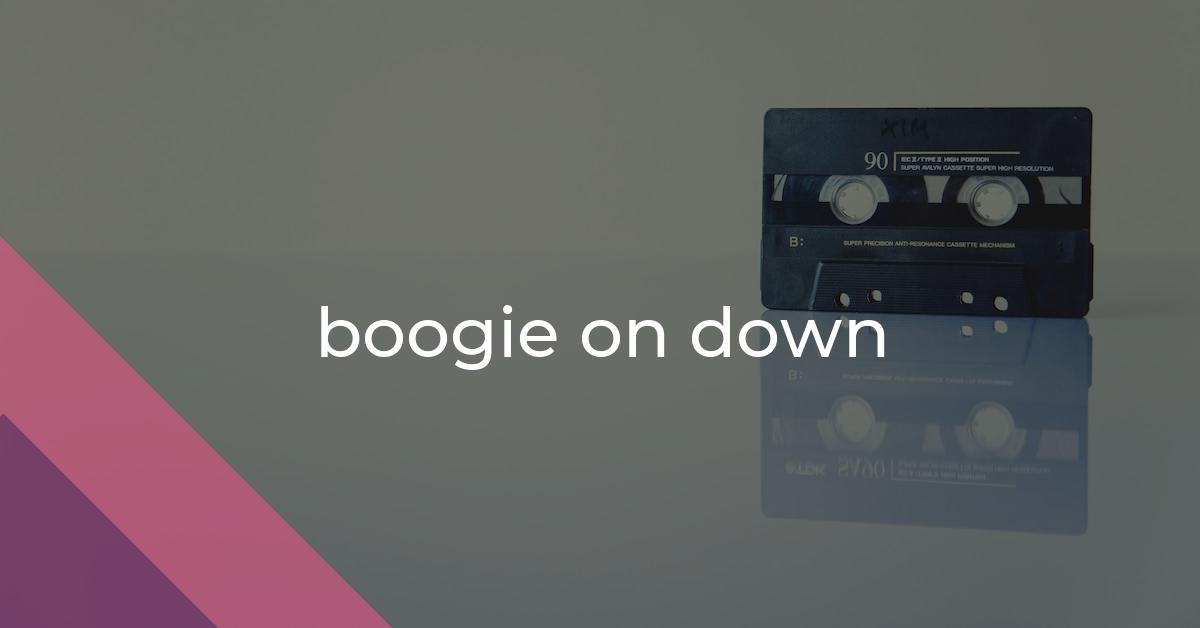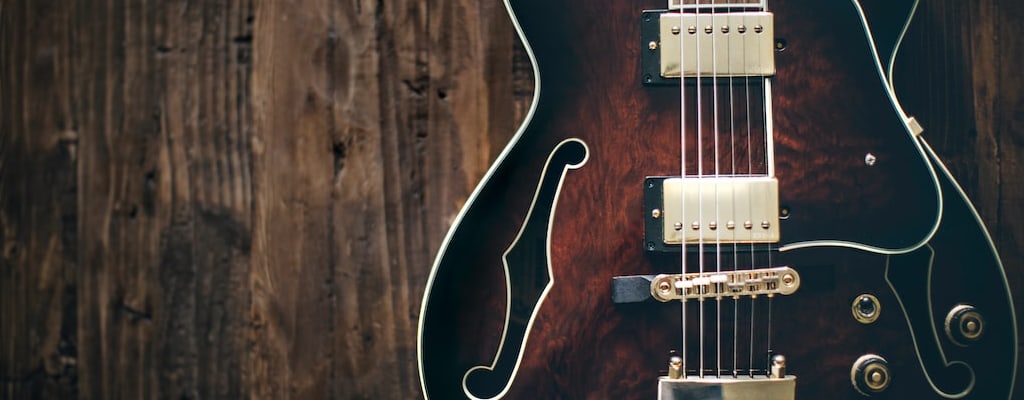boogie on down: Idiom Meaning and Origin
What does ‘boogie on down’ mean?
The idiom boogie on down means to dance energetically and enthusiastically. The term "boogie" refers to a style of music and dancing that emerged in the 1970s. "On down" emphasizes the movement and enjoyment while dancing.

Idiom Explorer
The idiom "full tilt boogie" means to go at maximum speed or effort, often used to describe a situation or activity that is intense, fast-paced, or energetic.
The idiom "duck down" means to quickly lower one's head or body to avoid being seen, hit, or caught. It is often used in situations where one needs to hide or protect themselves from something or someone.
The idiom "dress down" means to wear informal or casual clothing, or to reprimand or criticize someone in a severe or stern manner.
The idiom "down with the kids" means to be familiar with and understanding of the interests, trends, and culture of younger people.
The idiom "down on one's uppers" means to be in a state of poverty or financial hardship.
The idiom "down in the dumps" means feeling sad, depressed, or low in spirits.
The idiom "down but not out" means being temporarily defeated or in a difficult situation, but still having the determination and ability to recover and succeed.
The idiom "down and out" refers to someone who is in a hopeless or desperate situation, often financially or emotionally. It describes someone who has hit rock bottom and is struggling to recover.
Unleashing Dancefloor Desires
The idiom *boogie on down* is a colloquial expression that originates from African American Vernacular English (AAVE) and gained popularity in the 1970s. It describes dancing energetically or with great enthusiasm. The phrase *boogie on down* merges the words "boogie," which refers to a style of dance associated with funk and disco music, and "on down," which implies movement or progression. This idiom has been widely used in popular culture, especially at dance parties or social events.
One possible explanation for the origin of the term *boogie on down* can be traced back to the mid-20th century when the expression "boogie-woogie" emerged within African American communities. Boogie-woogie denoted a lively and rhythmic piano style in a particular musical genre. The term "boogie" became linked to dancing to this music and eventually transformed into a verb used to describe lively and rhythmic movements on the dance floor.
Throughout the 1970s, the phrase *boogie on down* gained popularity as disco music and dance culture flourished. Disco originated in African American and gay communities, becoming a mainstream phenomenon that showcased various dance styles. The idiom *boogie on down* perfectly captured the exuberance and enthusiasm associated with disco dancing, quickly integrating itself into popular culture.
In addition to its association with disco, *boogie on down* has also been employed in other music genres like funk and soul. These genres, particularly prevalent in the 1970s, emphasized rhythmic and energetic dance movements. The idiom *boogie on down* conveys the essence of the dynamic and uninhibited style of dancing characteristic of these genres.
While the phrase *boogie on down* reached its peak popularity in the 1970s, it has endured over the years and remains in use today across various contexts. Its usage is not limited to specific regions or communities, making it a mainstream expression associated with enthusiastic dancing and celebration.
The term *shimmy on down* is closely related to the idiomatic expression *boogie on down*. "Shimmy" denotes a rapid back-and-forth movement or vibration, often associated with dancing or with shaking one's body. When used in conjunction with *on down*, it captures the idea of energetic and rapid movements while dancing. This variation of the idiom maintains the same spirit and enthusiasm found in *boogie on down*.
*full tilt boogie* is another idiom related to *boogie on down*. "Full tilt" implies moving or operating at full speed or maximum effort. When combined with *boogie*, it conveys a sense of dancing with complete dedication and energy, giving it the same enthusiastic connotation as *boogie on down*. These two idioms share the common theme of lively and energetic movement while dancing.
The expression *do down* is also connected to *boogie on down*. "Do" in this context refers to performing or engaging in a particular action. When used with *down*, it implies dancing or engaging in energetic movements. Similar to *boogie on down*, *do down* emphasizes the idea of enthusiastic and lively dancing.
*Boogie on down*, *shimmy on down*, *full tilt boogie*, and *do down* are all idiomatic expressions that describe energetic and enthusiastic movements while dancing. While *boogie on down* is the most widely recognized of the four, the others capture different aspects or intensities of the same overall idea.
*Boogie on down* is an idiomatic expression that emerged in the 1970s and is associated with energetic and enthusiastic dancing. Its roots can be traced back to African American Vernacular English and its association with music genres like disco, funk, and soul. These idioms have found a place in popular culture and continue to be used today to describe exuberant dance movements. Their enduring popularity speaks to the universal appeal of music and dance as forms of expression.
Example usage
Examples of how the idiom boogie on down can be used in a sentence:
- After a long day at work, I like to put on some music and boogie on down in my living room.
- Let's forget about our worries and boogie on down at the dance party tonight!
- Even though it was raining, the crowd at the outdoor concert didn't let it stop them from boogieing on down.
More "Dance" idioms



